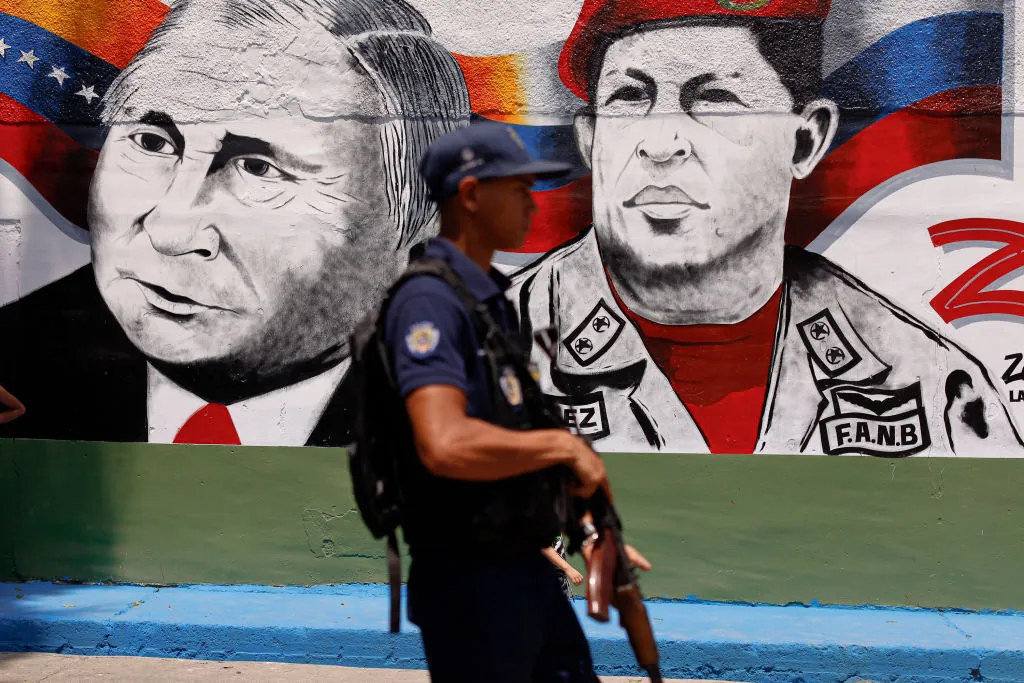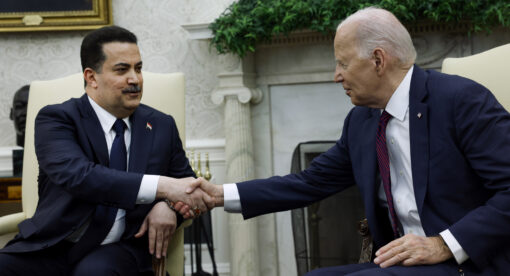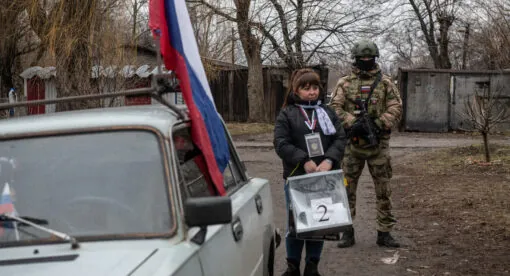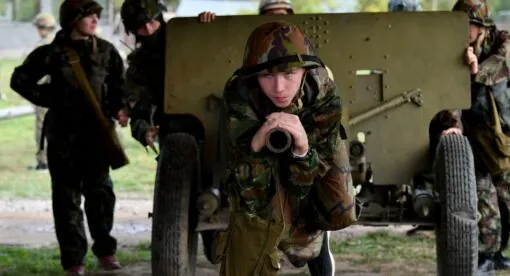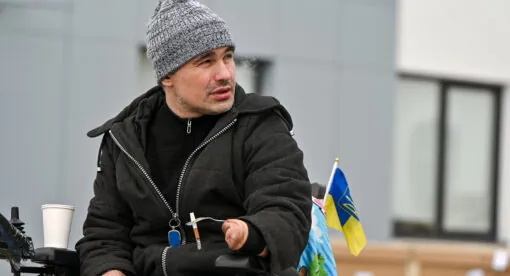For the past decade, an increasingly overconfident Russia has challenged U.S. influence in Latin America by joining forces with the regional leaders who have drifted away from the U.S. orbit. While Russia worked to increase its diplomatic and military influence in the region in what some have called a return to Cold War tactics, Latin American leaders sought to strengthen their positions by aligning with Russia and China since the United States has underplayed its relationship with the region. However, in this new conflict-prone global environment, statements like that of Russian Deputy Foreign Minister Sergei Ryabkov in which he refused to confirm or deny the possibility of enhancing Russian military presence in Venezuela in response to NATO’s expansion in Eastern Europe cannot be taken lightly. This could be the wake-up call the United States needs to regain that diplomatic space.
In the days leading up to Russia’s invasion of Ukraine, Russian President Vladimir Putin consolidated his relationships with Latin American leaders to ensure support for Moscow and ensure leverage against the United States. On Feb. 16, Russian Deputy Prime Minister Yuri Borisov traveled to Caracas, Havana, and Managua. Meanwhile, Putin hosted Brazilian President Jair Bolsonaro and Argentinian President Alberto Fernández, who both had expressed their aspirations to drift away from U.S. influence. These diplomatic moves are in line with Russia’s foreign policy toward Latin America since 2008.
Russia pursued a campaign to expand its sphere of influence, and Moscow’s effectiveness at consolidating those diplomatic ties was exposed recently. Initially, Latin American countries had mixed reactions to Russia’s invasion of Ukraine. Peru, Ecuador, Honduras, and Mexico, all with varying degrees of diplomatic and military ties with Russia, called for a cease-fire. Perhaps not surprisingly, because of their stronger ties with the U.S., Chile and Colombia denounced Putin’s actions. At the same time, Brazil attempted to remain neutral by issuing press releases stating their neutrality, disregarding his government’s official stance at the United Nations. Finally, Cuba, Nicaragua, and Venezuela expressed their support for Russia.
Before the Invasion of Ukraine
Putin has taken advantage of recent political changes and a shift toward a leftist political ideology to consolidate the Kremlin’s diplomatic grip in Latin America. He has done so through political recognition, vaccine diplomacy, and trade and security agreements. Between 2006 and 2016, trade between Russia and Latin America increased by 44 percent, and Brazil and Mexico now represent about 50 percent of all Russian trade with the region. Alongside economic efforts, Putin focused diplomatic and security efforts on countries with struggling relationships with the United States and whose political and economic views are similar to Russia’s, such as Cuba, Nicaragua, and Venezuela. Putin also reached out to Brazil and Argentina’s new leaders.
Putin’s relationship with Brazil strengthened once Bolsonaro’s presidency began in 2019. While Bolsonaro was trying to get Washington’s recognition, the Kremlin was more than happy to show its support. Russia’s efforts to engage with Brazil’s new leadership led Bolsonaro and Putin to discuss potential expansions of trade and security agreements. Putin has even referred to Brazil as Russia’s most important partner in Latin America, as they collaborate on defense, agriculture, oil, and gas, yet no treaties have been signed. Even though the agreements would be beneficial for Brazil, Bolsonaro could be using his relationship with Putin, as well as Brazil’s increasing ties to China, to show Washington the growing need for the U.S. to regain influence in the region.
Russia’s relationship with Argentina has followed a similar path. Fernández met with Putin and stated how he believed Argentina needed to stop being dependent on the International Monetary Fund and the U.S. Fernández thought Russia had an essential role in this transition. Argentina owes the IMF over $40 billion, and Fernández strongly believes that it is time for a change in strategy for the country. Additionally, Argentina was among the Latin American countries to receive the Russian vaccine against COVID-19, along with Bolivia and Venezuela. Ties between Russia and Argentina seemed strong, especially after Fernández offered Argentina as “a gateway” to Latin America for Russia.
Additionally, Russia maintains very close strategic ties with Cuba, Nicaragua, and Venezuela. These three countries have come to depend heavily on Russian banks to bypass their own U.S.-imposed sanctions. In the case of Venezuela though the amount of money the government holds in Russian financial institutions is unknown, Caracas began to use Russian banks heavily following U.S. sanctions against Venezuelan leader Nicolas Maduro and the institutions Caracas controls, including the state-run oil company, Petróleos de Venezuela, S.A. Similarly, Russia has granted Cuba massive debt relief, forgiving $32 billion of Soviet-era debt in 2014, and has provided Cuba with oil in times of need.
Russia has followed the same debt relief policies and international diplomatic support with Nicaragua under President Daniel Ortega and with Venezuela under former President Hugo Chavez and again under Maduro. In both instances, Russia also provided military and intelligence support, whether opening up a counter-narcotics training center, committing to the modernization of Nicaragua’s military, or in Venezuela, sending specialists to service military equipment, selling aircraft and anti-missile systems, and holding bilateral military exercises.
Reactions to the Invasion
Until Russia invaded Ukraine, Washington seemed to pay little attention to Russian influence in Latin America. However, with growing international opposition to Russia’s invasion of Ukraine, and the decline in Moscow’s reliability as an ally for the Latin American countries, the U.S. appears more interested in regaining diplomatic terrain in the region. In recent weeks, Washington approached the Venezuelan government about restarting the oil trade, a highly controversial decision within the U.S. government, and met with Colombian President Iván Duque over giving Colombia a non-NATO ally status – a status only Argentina and Brazil currently hold in the region.
On March 2, 141 countries voted in favor of the non-binding resolution by the U.N. General Assembly to condemn Russia’s aggression against Ukraine and demand a withdrawal of Russian troops from Ukrainian territory. Out of the remaining 52 member states, 35 abstained and five voted against the resolution. These five were: Belarus, North Korea, Eritrea, Russia, and Syria. Out of the 35 that abstained, we find longstanding Russian allies like Cuba, Nicaragua, and China. More interestingly, Bolivia and El Salvador were also among the Latin American countries that abstained. Other member countries were unable to vote on the matter; Venezuela could not vote because it had not paid its membership dues.
Russia’s decision to invade Ukraine left Latin American countries in a difficult position. Most followed Mexico and Brazil’s course: The two countries declined to impose economic sanctions on Russia or condemn the Russian invasion. They also have no concrete plans to cut diplomatic ties, even though their representatives voted in favor of the U.N. Resolution.
Brazil and Mexico have expressed their concerns over how sanctions could affect their own economies. Brazil imports more fertilizers from Russia than any other country; 69 percent of Brazil’s fertilizers are imported from Russia. After Brazil, Mexico is the second most important partner for Russia in Latin America. According to Mexico’s Foreign Affairs Ministry, Russia was Mexico’s 35th largest trading partner in 2020, with two-way trade worth just under $1.3 billion. Russian products accounted for two-thirds of that amount. Even if these countries will not sanction Russia themselves, sanctions from companies and trading partners mean they will need to find other trading partners to substitute the goods they import from Russia in order to satisfy their internal demands.
On the other side, Cuba, Nicaragua, and Venezuela supported Russia’s actions in Ukraine and blamed the crisis on the U.S. and NATO, as was expected. After all, Russia shares more than military and trade deals with these countries; Russia’s financial system has been an essential enabler in Venezuela and Nicaragua’s sanctions evasion efforts in recent years. With Russian financial institutions now cut off, these countries could face additional economic challenges in the coming months. Furthermore, for Russia, these Latin American allies represent critical components in its efforts to establish a long-term security threat for the U.S. by continuously stating that depending on how the U.S. and NATO to act near its border, Russia will engage its allies in the region via unspecified “military-technical measures.”
Despite Moscow’s influence in Latin America, the U.S. and China have far more significant ties to the region. In 2019, for example, South American exports to Russia amounted to $5 billion, but exports to the U.S. and China were $66 billion and $119 billion, respectively, according to data compiled by Harvard University. Russia’s specialty in the region has been political support for countries becoming isolated on the global stage and defense assistance, but that support may soon lose its value with Russia’s diplomatic isolation and economic decline.
Likewise, if Moscow’s key allies in the region decide to abandon their relationship with Russia, Cuba and Nicaragua are likely to suffer the worst because of sanctions, but they would still have close economic ties with China to rely on. For now, they act as proxies that Russia can leverage against the U.S. because of their geostrategic proximity to the U.S. and military alliances with Russia. Although Venezuela plays a similar role, Maduro is uniquely positioned to exploit the current situation. With the U.S. banning Russian oil imports, it has turned to Venezuela after almost three years without any diplomatic relations, and Maduro’s administration seems eager to begin talks.
Nonetheless, it is up to the United States to take Russia’s invasion of Ukraine as an opportunity to enhance its alliances with Latin American (and European) partners. Washington will also have to navigate the challenge of incoming leaders, as Colombia, Costa Rica, and Brazil face elections this year. With the Summit of the Americas taking place in Los Angeles in June this year, Washington has a unique opportunity to further push this goal, guide Latin American countries in this changing economic landscape, and use new opportunities to spread democracy and development in the region.
Claudia Gago is currently pursuing a Master of Arts in Law and Diplomacy at The Fletcher School. She is the research intern for the State Resilience and Fragility Program at The New Lines Institute for Strategy and Policy, and her primary focus is on Latin America. She tweets at @gaguitoclaudia
The views expressed in this article are those of the author and not an official policy or position of the New Lines Institute.

